- Home
- Rick Mofina
Jason Wade - 01 - Dying Hour Page 3
Jason Wade - 01 - Dying Hour Read online
Page 3
Later Jason wandered back into the news section, to Beale, who was watching Letterman on the big-screen TV on the high shelf.
“What do you think? Is she dead?” Jason asked.
“She could surface. It happens. But who knows? Pretty college girl all alone on a stormy night. I’ll tell you one thing.” Beale switched off the set, collected his jacket and bag to leave. “Readers will eat this up. People love a mystery.”
7
* * *
A seagull shrieked from the waterfront as Jason Wade walked to the parking lot. Gentle breezes skipped along the bay, carrying the smell of brine and the long, mournful sound of a tug.
He stopped to watch the Mirror’s delivery trucks rumble from the docks, laden with bundles of the edition carrying his story. His first front-page story. On its way to a metropolitan area of three and a half million people. To every doorstep in every neighborhood, to every street and corner store where the Mirror battled the Times and the P-I for readers.
Beat you both.
He stared at his byline for what must’ve been the tenth time tonight, drawn again to Karen Harding’s picture.
He hoped she was still alive. He didn’t wish for anything bad to happen to her just so he could get a good story. Although he needed one. No matter what had happened to her, this one was his and he wasn’t going to let it go.
He rolled up the paper and unlocked his car, a 1969 red Ford Falcon. Spotted with primer, it had sat for years in the garage of a firefighter’s widow on Mercer Island. She had placed a for-sale ad online. Jason was the first to respond. It needed some work but ran good. Six hundred bucks. The Falcon might not be pretty, but it had never let him down.
He headed for Denny Way. As he wheeled toward Broad Street the Space Needle ascended before him. To the south, the skyline glittered with its tallest buildings, the Bank of America Tower, Two Union Square, and Washington Mutual. Not far from them was Pike Place Market.
Jason marveled at Seattle. Jet City. The Emerald City.
At this time of night, it was all his.
Northbound on Aurora Avenue, he thought that maybe he should mark the evening with a little celebration. He’d earned it. Temptation beckoned from the back of his throat and he drew his hand across his mouth.
No. Forget that and get home.
To the east he saw Gas Works Park as he approached the Aurora Avenue Bridge, which spanned Lake Union. On lazy, sunny days he’d come here to watch the sailboats, or the ships navigating the Ballard Locks and the Lake Washington Ship Canal on their way to the ocean. He also knew the darker history of the bridge. Everyone did. Since its construction, a lot of people had jumped from it to their deaths.
After he entered the eastern edge of Fremont, he stopped for Chinese takeout from Johnny Pearl’s. Thirty minutes later he was home.
His neighborhood was on the fringes of Fremont and Wallingford, a peaceful enclave of quiet family homes. His building was a large, nineteenth-century house that had been divided into apartments.
He had moved here halfway through college to put some distance between him, his old man, and the brewery. The stairs creaked as he climbed them to the third floor and unlocked his door.
He kept the lights low. It relaxed him. His living room had oak floors and two secondhand, dark green leather sofas he’d picked up for free from a dentist who was closing his office. The sofas faced each other before the fireplace, which was bordered by built-in bookcases. A low-standing coffee table smothered with newspapers rose between them.
At the opposite end of the room, Washington-born Jimi Hendrix, Jason’s beloved god of rock, was frozen in a giant poster above his thirty-gallon aquarium. Aware of the hour and not wanting to disturb his neighbor below, he carefully lifted a chair from the kitchen. Without a sound he placed it before the tank, which made the room glow in soft blue light. The tiny tropical fish gliding among the coral, the sunken ship, the diver, and the bubbles soothed him. A little sign near the diver warned FISH WILL ATTACK ON COMMAND.
Jason cut a lonely figure, sitting there eating his chicken fried rice and ginger beef, his newspaper on the floor below him as he looked at his story for the thousandth time.
A dream realized.
As far back as he could remember, all he wanted to be was a writer. And ever since he began reading people like Crane, Steinbeck, and Hemingway, he figured being a reporter was the best training, a ticket to the greatest story on earth: life.
He studied its daily dramas every morning on his first job in the business, delivering the Seattle Mirror. Reading the news took his mind off of his own troubles, like when his mother walked out on him and his old man.
She had worked alongside his father on the bottling line at the brewery. But she was drowning, she had written in her note, and was leaving to survive. Her desertion crushed Jason.
“We have to keep going, Jay,” his father said one night while they were watching a game on TV. “She’ll come back, you’ll see.”
But she didn’t.
Later on, as Jason tried to comprehend how his mother could just leave, his grades plunged, his college dream slipped away, and his father got him a job at the brewery.
They would rise before the sun, get into his father’s pickup, and drive to the dreary concentration of dirty brick buildings, smoke-plumed stacks, and the overpowering smell of hops. For Jason, it was a gate to hell and he understood why the thermos in his old man’s lunch bucket was spiked with bourbon.
Jason’s bucket always carried a book.
He vowed to pull himself out of that place. Between loading trailers with pallets of beer, he read classic literature, saved his money, went to night school, improved his grades, enrolled in college, worked weekends at the brewery. He also drank a bit. All right, more than a bit. Hell, name a writer who didn’t. He moved into the apartment, wrote for the campus paper, and freelanced stories while working part-time at a Seattle weekly.
Then he met Valerie.
She was a graphic artist from Olympia. Her parents had died in a car accident years ago and she had no other family. A loner like him. They fell in love, talked about living together, marriage, kids, the whole thing. What they had going was deep and good.
Until he destroyed it.
He’d stopped off at a bar after working late, forgetting how a week earlier he had stood her up for a movie by doing the same thing. Only on this night, the anniversary of the day his mother had walked out, he’d forgotten about Valerie’s company’s awards banquet. He arrived underdressed, late, and drunk.
“How could you do this, Jason? Don’t you have any self-respect?” Valerie’s voice broke in the cab. He never forgot the hurt clouding her eyes a few days later. “We need time apart,” she told him. “There’s a short-term job I’m taking in Los Angeles. I’m driving down next week. Alone.”
That was that.
???
Man, that was that. Jason blinked at the beaded bracelet on his wrist and almost smiled. A gift from Valerie. The bracelets were popular at Pike Place Market where she’d bought an identical pair when they first began dating. “One for you, one for me.” She had laughed, slipping it on him. “We’re handcuffed together. Forever.”
Jason had tried to reach her in Los Angeles, but it was futile. She never called or e-mailed him. He didn’t know the company in L.A. All he could do was hope she would come back so he could make things right. But it dawned on him that he was like his father, that he had lost the woman in his life and, like his old man, drank to ease the pain.
That was several months ago.
In the aftermath, Jason painstakingly regained control. He quit drinking and clung to the only dream he had left, becoming a reporter. He was so close now, he thought, staring at the front page of the Seattle Mirror.
He finished eating, then went to his fridge, opened the door, and stared at the lone bottle of beer. He kept it there to prove to himself he didn’t need it anymore. That he was not like his father. Right, but he deserved t
o celebrate. Just tonight.
No.
He reached for a bottled water, shut the door, picked up his fresh copy of the Mirror from the floor, headed down the hall. After brushing his teeth, he fell into bed, exhausted. He removed the bracelet, capped it on his bedpost, then folded the paper so he could study his piece.
Karen Harding stared at him from the newsprint.
He could not take his eyes from hers.
It was as if she were pleading for him to help her.
8
* * *
Karen Harding was surfacing.
Eyes closed.
Dreaming, still dreaming, she was rising slowly to consciousness as her senses awakened. Her head throbbed with the noise. A drone. Deafening against her ears. Something rolling, circulating at high speed like a power tool. Like a buzz saw.
Her entire body bounced gently as if on a spring. Swaying. Floating. Moving as she grappled to keep dreaming of her sister. Marlene. She was talking to Marlene. She needed to see Marlene. Calling out to her. And Luke. She was no longer upset with Luke. She needed them. Desperately. Why didn’t they hear? Why didn’t they come to her?
Her ears were pounding. Was that her heart beating?
Closer now. Almost there.
Her dreams faded and she could feel her blood pulsating in her ears. Then a sickening feeling slithered in her stomach. Something has happened. You’re not dreaming.
Don’t open your eyes.
Her heart began to hammer. She shuddered. Instinct told her to feign unconsciousness. Assess everything. She tried to swallow, but it was difficult to breathe. Her jaw ached. Her teeth biting on something foreign wedged in her mouth. Her tongue timidly probed the object. It was large, circular, fabric and twisted like a cord, which went completely around her head.
She was gagged.
Her mouth was filled with a terrible bitter taste. Breathing was hard. Swallowing air hurt. Her cheeks were wet with drool.
Don’t open your eyes.
There was pressure near her hands. Karen strained her fingers, feeling the coils of rope binding her wrists. She drew short quick breaths. Her ankles. She felt pressure at her ankles and ordered her muscles to move her feet apart. Nothing happened. Her feet were bound. She was on her back.
What was happening to her?
God. Please help.
Keeping her eyes closed, she clawed at her memory. Go back. Think. She’d been driving. Upset with Luke, she had left Seattle to see Marlene in Vancouver. Her car had broken down in the storm and someone stopped.
The reverend.
So kind.
She had stepped into his RV. It had a strange odor. Newspapers, maps, files, and other assorted items were strewn about the front. A bad feeling overwhelmed her. She wanted to return to her car but didn’t want to appear ungrateful. He’d been so good to stop and help, and then everything went dark.
Then she remembered feeling as if someone was carrying her….
Her heart slammed against her rib cage.
Oh God!
Karen swallowed. She was fully conscious. She knew she was moving. Traveling. She opened her eyes to darkness. She tried to lift her head but struck it against something hard, knocking her back. She manipulated her hands to the right and felt a hard wall.
Gooseflesh rose on her entire body.
Oh, dear God!
Karen was terrified. She tried to scream but couldn’t. She tried to kick but couldn’t. She tried to pound her fists against all sides of her tomb but couldn’t. She began to sob but it only made her choke and gasp.
She forced herself to be calm.
Oh God. What’s happening?
Be calm. Be calm. Be calm.
She had to stay calm and think. She had no sense of how long she’d been here. Or if it was real. Was it real? Or was it just some sort of joke? A sick college rite of passage? One of Luke’s stupid friends? Trying to scare her? It wasn’t funny.
It wasn’t a joke.
She turned to her left, blinking at the darkness. She started a prayer when her body bounced, shifting her slightly, piercing the blackness with a thread of light.
Karen blinked.
With some effort she repositioned herself to the left, drawing her face closer to the light. It was a seam no wider than the edge of a credit card, allowing her a narrow glimpse of the outside. Concentrating and pressing against it to widen it, she was able to see carpet.
She held her breath.
She was in an RV. Directly across from her was the veneer finish of the storage compartment that supported a twin bed. So she was under the twin bed at floor level. Under the storage area of one of the RV’s beds at the rear. Maybe she could break out?
She forced her body against the wall to her right and pushed hard against the wall with the crack. Nothing. Like trying to push against stone.
Karen collected herself, drew her face back to the crack, pressing against it, widening it a little, to see what else she could see. Her eyes traveled from the rear, over the files, papers, maps toward the front. It looked as if there’d been a terrible struggle.
She saw the driver’s head. His neck. Karen tried to swallow.
The reverend.
Cutlery, or what she thought was cutlery, rattled as the RV rolled over a bump, jolting Karen.
She heard a thud above her, saw something strobe across her shaft of light. When she focused, her scalp tingled.
A woman’s arm hung over the edge of the bed above her.
9
* * *
Shortly after dawn the next day, a police helicopter hovered over State Route 539, a few hundred feet above Karen Harding’s Toyota.
The yellow ribbon of tape marking the huge rectangle around her car quivered in the prop wash, lifting the pages on Hank Stralla’s clipboard. Sipping take-out coffee, the Sawridge County detective faced the clear morning light painting the spot where Karen Harding had vanished.
Too early to tell exactly what the hell happened here.
The chopper pivoted to make more passes south along the shoulder. It had gone about half a mile. The break in the thumping allowed him to think. Was this a young woman who had simply hitched a ride when her car broke down, or a crime? One thing was certain: the circumstances were suspicious.
He looked up at the Cessna borrowed from Washington State Patrol. It made another pass, photographing the area and scouring the terrain for any signs of a body. Then he heard a yip from Sheeba, the Belgian shepherd emerging from the forest, snout to the ground, leading Chris Farmer, one of the state’s best K-9 officers.
“The heavy rain won’t make it easy for her to pick up a scent,” Farmer had told Stralla at the outset.
“I appreciate that. Just do what you can.”
Stralla watched the crime scene investigators in their white moon suits working on the Toyota. They’d been at it since daybreak.
“At this point, there’s no sign of violence,” said Cal Rosen, the lead criminalist, as he chugged a Coke. “No indication of a struggle or blood. No casings. Nothing. We got some partial latents, but the car’s pretty clean. Strange she would leave the keys.”
“Strange. What about mechanically?”
“We’ve got to get the car on a flatbed and over to the garage to process it further, give it a good goingover, and examine everything. At this point, it looks like she ran out of gas and got picked up, or walked away.”
Stralla agreed, it was the most likely scenario. His attention went to her driver’s license picture on his clipboard. She ran out of gas. She walked off, or someone stopped. Then what?
He scratched his chin.
They had zero so far, nothing to point them in any direction. Time was always a factor. Soon he’d start a shoulder-to-shoulder grid. And he would call in divers to check the Nooksack River.
He looked under Karen Harding’s license and the folded copy of the Seattle Mirror. That kid, Jason Wade, had done all right on the story. Down the road, a satellite news truck from
Bellingham was lumbering to the scene. More press were arriving.
Stralla sighed. During his time on the job he’d seen it all.
Scams. Cons. Insurance frauds. People who couldn’t make car payments. Pissed-off spouses, adults who had the right to lawfully vanish. Let people think they disappeared into Canada, if they chose.
He was haunted by the case of a troubled housewife who’d vanished a few years ago under similar circumstances. He had leaned so hard on a paroled convict he believed had killed her that it nearly drove the man to suicide. Then the housewife surfaced in Toronto. Turned out she’d staged her disappearance to cover for an affair. The case shook Stralla to his core. Angry at himself, he vowed never to repeat his mistakes. Until they had something concrete, Karen Harding was a person missing under suspicious circumstances.
A large group of people had gathered at the perimeter. Karen Harding’s college friends, including some teachers. They’d volunteered to help search the scene. The newspeople were interviewing them, taking pictures. He went back to his clipboard and reviewed his reports.
He wanted to talk to Luke Terrell, Karen’s boyfriend, and Marlene Clark, her sister. Luke had told Tolba that Karen was on her way to visit her sister in Vancouver, B.C., but her sister said it was news to her.
Something didn’t sit right on that point.
Stralla needed to know more about Karen’s state of mind when she left. Was she emotionally or physically impaired? Taking medication? Cal was right. It was strange that she’d left her keys in the car.
Chilling.
But Stralla kept that to himself, hoping for a mundane explanation as he scanned the rolling dark forests and the Cascade Mountains. Too much of this vast beautiful region was stained with blood. The Green River Killer, the Spokane Serial Killer, and the grisly cases up in British Columbia all jutted from its history like headstones.

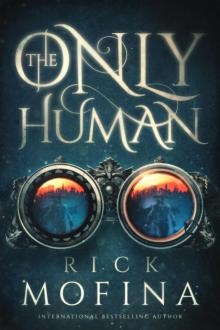 The Only Human
The Only Human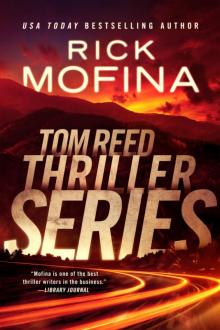 Tom Reed Thriller Series
Tom Reed Thriller Series![[Tom Reed and Walt Sydowski 04.0] No Way Back Read online](http://i1.bookreadfree.com/05/tom_reed_and_walt_sydowski_04_0_no_way_back_preview.jpg) [Tom Reed and Walt Sydowski 04.0] No Way Back
[Tom Reed and Walt Sydowski 04.0] No Way Back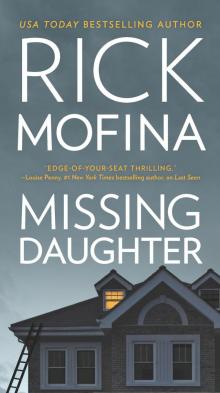 Missing Daughter
Missing Daughter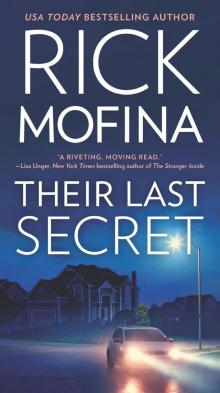 Their Last Secret
Their Last Secret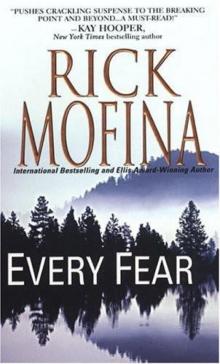 Jason Wade - 02 - Every Fear
Jason Wade - 02 - Every Fear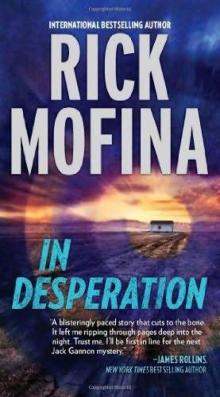 In Desperation
In Desperation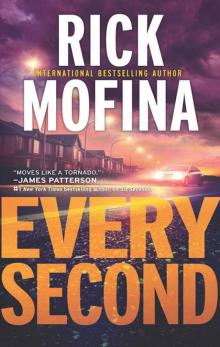 Every Second
Every Second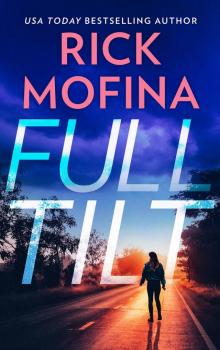 Full Tilt
Full Tilt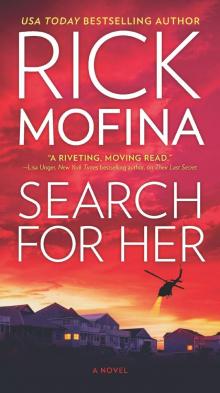 Search for Her
Search for Her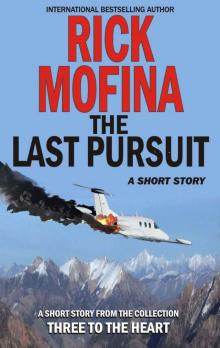 The Last Pursuit
The Last Pursuit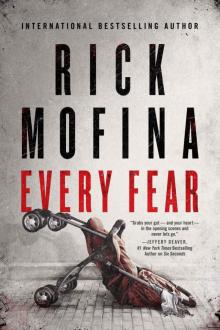 Every Fear
Every Fear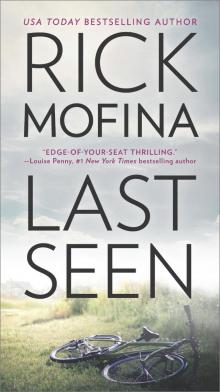 Last Seen
Last Seen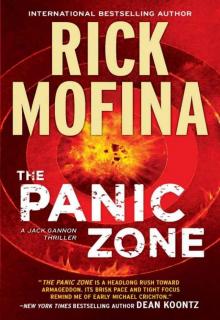 The Panic Zone
The Panic Zone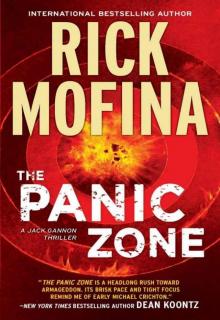 The Panic Zone jg-2
The Panic Zone jg-2 Free Fall
Free Fall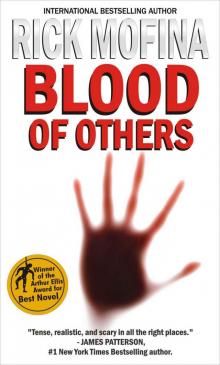 Blood of Others
Blood of Others![[Jason Wade 02.0] Every Fear Read online](http://i1.bookreadfree.com/i1/03/31/jason_wade_02_0_every_fear_preview.jpg) [Jason Wade 02.0] Every Fear
[Jason Wade 02.0] Every Fear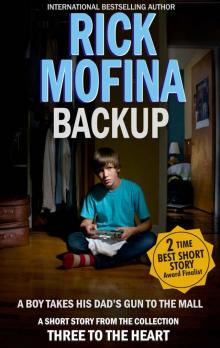 Backup
Backup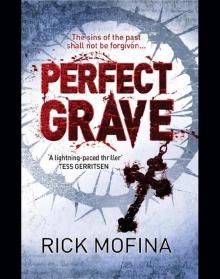 Perfect Grave
Perfect Grave Into the Dark
Into the Dark Whirlwind
Whirlwind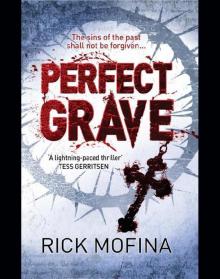 Perfect Grave jw-3
Perfect Grave jw-3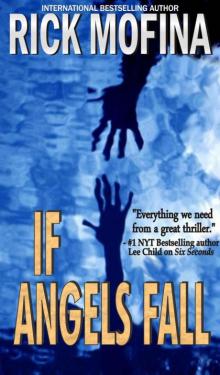 If Angels Fall (tom reed and walt sydowski)
If Angels Fall (tom reed and walt sydowski)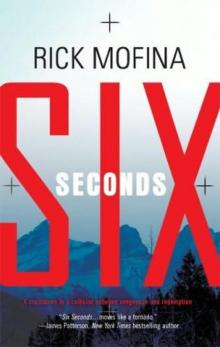 Six Seconds
Six Seconds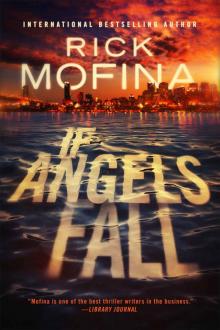 If Angels Fall
If Angels Fall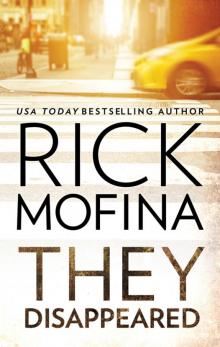 They Disappeared
They Disappeared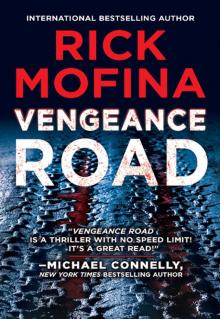 Vengeance Road
Vengeance Road Before Sunrise
Before Sunrise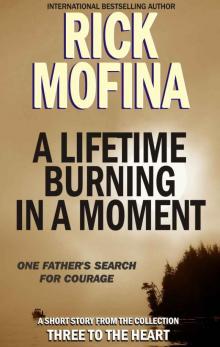 A Lifetime Burning in a Moment
A Lifetime Burning in a Moment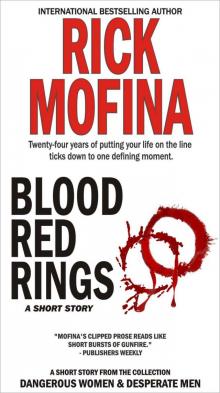 Blood Red Rings (Dangerous Women & Desperate Men)
Blood Red Rings (Dangerous Women & Desperate Men)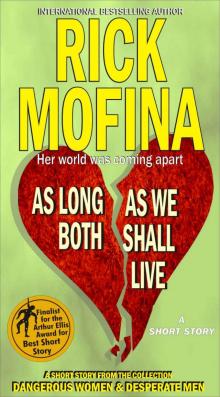 As Long As We Both Shall Live (Dangerous Women & Desperate Men)
As Long As We Both Shall Live (Dangerous Women & Desperate Men)![[Tom Reed and Walt Sydowski 01.0] If Angels Fall Read online](http://i1.bookreadfree.com/i2/04/12/tom_reed_and_walt_sydowski_01_0_if_angels_fall_preview.jpg) [Tom Reed and Walt Sydowski 01.0] If Angels Fall
[Tom Reed and Walt Sydowski 01.0] If Angels Fall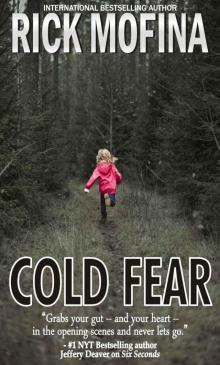 Cold Fear
Cold Fear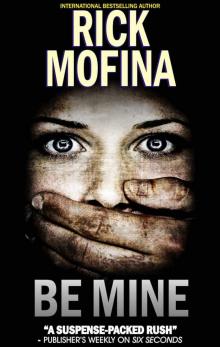 Be Mine
Be Mine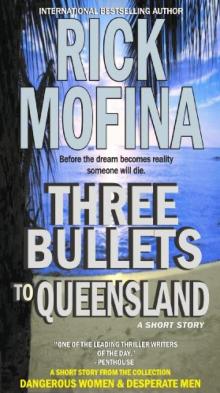 Three Bullets To Queensland
Three Bullets To Queensland